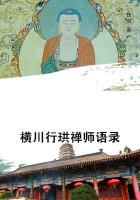Again and again, in after life, he went back over the ground to see whether he could detect error on either side. He found none. At every stage the steps were both probable and proved. All the more he was disconcerted that Russell should indignantly and with growing energy, to his dying day, deny and resent the axiom of Adams's whole contention, that from the first he meant to break up the Union. Russell affirmed that he meant nothing of the sort; that he had meant nothing at all; that he meant to do right; that he did not know what he meant. Driven from one defence after another, he pleaded at last, like Gladstone, that he had no defence. Concealing all he could conceal -- burying in profound secrecy his attempt to break up the Union in the autumn of 1862 -- he affirmed the louder his scrupulous good faith. What was worse for the private secretary, to the total derision and despair of the lifelong effort for education, as the final result of combined practice, experience, and theory -- he proved it.
Henry Adams had, as he thought, suffered too much from Russell to admit any plea in his favor; but he came to doubt whether this admission really favored him. Not until long after Earl Russell's death was the question reopened. Russell had quitted office in 1866; he died in 1878; the biography was published in 1889. During the Alabama controversy and the Geneva Conference in 1872, his course as Foreign Secretary had been sharply criticised, and he had been compelled to see England pay more than £3,000,000 penalty for his errors. On the other hand, he brought forward -- or his biographer for him -- evidence tending to prove that he was not consciously dishonest, and that he had, in spite of appearances, acted without collusion, agreement, plan, or policy, as far as concerned the rebels. He had stood alone, as was his nature. Like Gladstone, he had thought himself right.
In the end, Russell entangled himself in a hopeless ball of admissions, denials, contradictions, and resentments which led even his old colleagues to drop his defence, as they dropped Gladstone's; but this was not enough for the student of diplomacy who had made a certain theory his law of life, and wanted to hold Russell up against himself; to show that he had foresight and persistence of which he was unaware. The effort became hopeless when the biography in 1889 published papers which upset all that Henry Adams had taken for diplomatic education; yet he sat down once more, when past sixty years old, to see whether he could unravel the skein.
Of the obstinate effort to bring about an armed intervention, on the lines marked out by Russell's letter to Palmerston from Gotha, 17 September, 1862, nothing could be said beyond Gladstone's plea in excuse for his speech in pursuance of the same effort, that it was "the most singular and palpable error," "the least excusable," "a mistake of incredible grossness," which passed defence; but while Gladstone threw himself on the mercy of the public for his speech, he attempted no excuse for Lord Russell who led him into the "incredible grossness" of announcing the Foreign Secretary's intent.
Gladstone's offence, "singular and palpable," was not the speech alone, but its cause -- the policy that inspired the speech. "I weakly supposed . . . I really, though most strangely, believed that it was an act of friendliness."
Whatever absurdity Gladstone supposed, Russell supposed nothing of the sort. Neither he nor Palmerston "most strangely believed" in any proposition so obviously and palpably absurd, nor did Napoleon delude himself with philanthropy. Gladstone, even in his confession, mixed up policy, speech, motives, and persons, as though he were trying to confuse chiefly himself.
There Gladstone's activity seems to have stopped. He did not reappear in the matter of the rams. The rebel influence shrank in 1863, as far as is known, to Lord Russell alone, who wrote on September 1 that he could not interfere in any way with those vessels, and thereby brought on himself Mr. Adams's declaration of war on September 5. A student held that, in this refusal, he was merely following his policy of September, 1862, and of every step he had taken since 1861.















